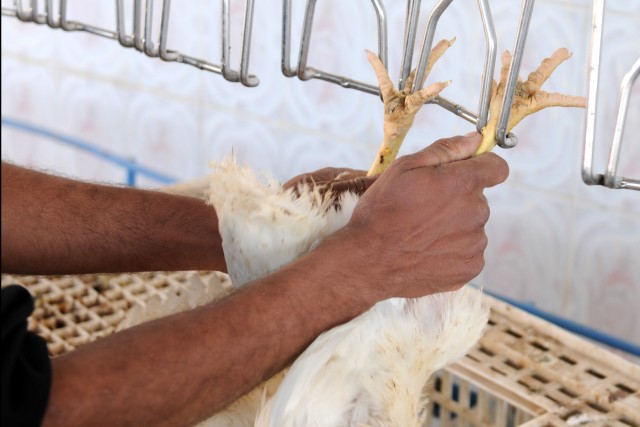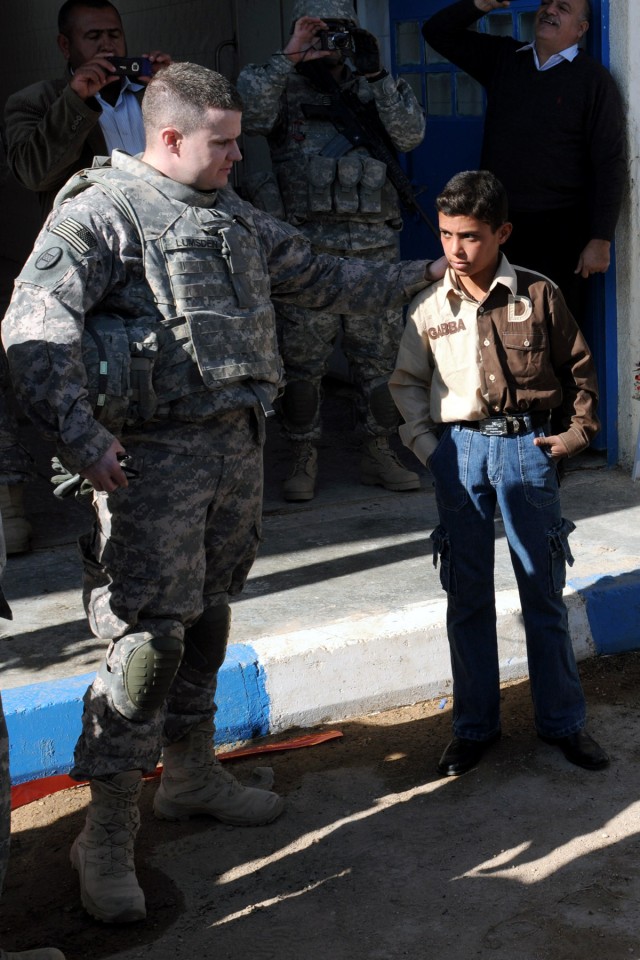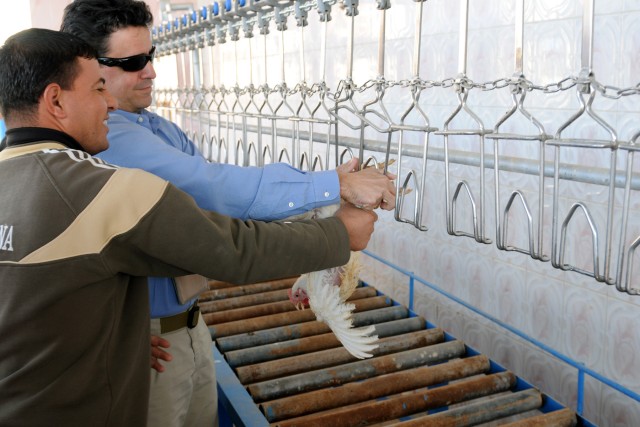BAGHDAD - Soldiers from 120th Combined Arms Battalion, 30th Heavy Brigade Combat Team, 1st Cavalry Division joined Department of Agriculture representatives to witness the reopening of a poultry processing plant Jan. 10 that promises to increase profits in Yusifiyah.
The Al Kanz Poultry Processing Plant, southwest of Baghdad near Contingency Operating Station Falcon, reopened after being closed in 2004 due to the poor condition of its facilities and the lack of poultry producers.
Thanks to joint efforts between the U.S. Army and the Department of Agriculture, the plant, which could employ up to 150 Iraqis, reopened in hopes of sparking the industry in the Yusifiyah area, said Capt. Bobby Lumsden, an operations officer with 30th Heavy Brigade Combat Team.
"The plant is the only functioning processing plant that can take live chickens direct from the farmers, completely prepare them, freeze them, and deliver them to the market," said Lumsden.
"In the early 1970s, this region, which used to be nicknamed 'the triangle of death,' exported poultry and agriculture," said Juan Alsace, team leader of the embedded Provincial Reconstruction Team, a subsection of the Department of Agriculture. "The infrastructure was here; we just had to refurbish what was already in place."
The 101st Airborne Division began refurbishing the plant in March 2008, and 2nd Brigade, 1st Armored Division, along with 30th HBCT, continued the project, said Michael Clayton, senior advisor for the ePRT.
The plant provides Iraqi people fresh halal chicken, which is slaughtered in accordance with Islamic standards, said Clayton.
Soldiers from 120th CAB provided security for the project as well as acting as liaisons for the U.S. Army effort in funding the project.
Teaching Iraqis methods to flourish on their own gives them the ability to provide their own stability without needing to rely on Americans, said Clayton.
"The key to this project is sustained capacity building for when the Army is gone," Alsace explained.
"We've taught the farmers husbandry methods that allow them to produce a market weight chicken in 35 days; a process that used to take them 55-60 days to accomplish," said Clayton.
This project provides for hundreds of jobs due to all the supporting chicken farms, hatcheries, breeders, and feed mill workers it takes to support the processing plant, giving those hundreds of Iraqis a means to peacefully make a living.
The Mahmudiyah Poultry Association is an Iraq-run organization that spearheaded this project, asking the United States for assistance to reestablish the poultry value chain. The chain involves breeder houses, hatcheries, producers, and the processing plants in order to cut out middlemen who raise the cost to produce the end product.
Shaykh Najim Fadel Hussein al-Ameri, president of the association, said that assistance uncludes security and economic development. "Security and economic development are two different sides of the same coin."






Social Sharing